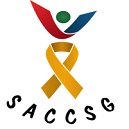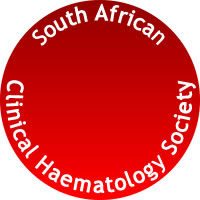|
At the time of writing this article, the world is severely disrupted by the coronavirus disease (Covid-19) virus. This unprecedented pandemic will last many months, and its aftermath will be felt for years. People are struggling and anxious. This difficult situation has resulted in changes to our daily activities and medical practice. Nevertheless, cancer services continue to provide care and comfort for patients.
We are grateful for the skills and exemplary ethics of all healthcare workers during this time. We look forward to resuming our familiar and rewarding interactions with colleagues. The extended use of virtual meetings and reconsidering our treatment approaches are examples of learning experiences that will surely influence us for many years to come.
Changes in our professional practice
The following question illustrates the issues around modifying practice because of changed circumstances: ‘is it ethical to treat more patients with hypofractionation during the pandemic than we did previously?’
To place our current situation in context, I describe below situations that are more severe than the present pandemic as well as our recent standard practice.
A more severe situation
The following is a modified hypothetical ethical case from a conflict zone with severe deprivations.1 It illustrates key principles that apply to all situations.
A group of five people sustained multiple injuries with loss of blood. All the injured need blood. The group leader is more injured than the others, and to treat him ideally would require all the available blood.
Should the more injured group member be treated optimally, or should one attempt to save all the injured members?
The medical-ethical answer is that all the injured are our patients. We must try to maximise the benefits for all our patients through prioritisation or triage, which recognises that there are clinical reasons as to why patients are not likely to benefit equally and that resources are limited:
- This requires medical insights to both tailor treatments and balance available resources. A structured approach towards medical benefit might use a priority points system and consider benefit in terms of ‘life years’ gained.
- We should avoid binary decisions – that is, consider only ‘either or options’. Time often brings clarification as we understand the trajectory of the disease.
- We must disregard factors such as perceived social worth. We must consider only clinical factors that will affect the well-being of our patients.
- We must also consider our future patients.
- We must consider the function of institutions, which we need to support our professional services.
Prioritisation or triage should be based on ethical, clinical and resource factors and not on subjective or social factors.
Standard care – Our recent care of patients
Even when resources are available, they are finite and need to be used judiciously.
The principles of value-based care (VBC) and evidence-based medicine (EBM) aid our decision-making. We weigh the clinical benefits of different treatments against the cost in terms of toxicity and utilisation of available resources. This enables us to ensure equitable access to the most effective clinical care our resources can provide.
The current pandemic
As in our standard care, we aim to maximise benefit for all our patients for whom we are responsible within our available resources. In this, we are guided by VBC and EBM.
In addition, we aim to minimise the risks of staff and patients to virus exposure by the type and process of treatments we administer. For example, hypofractionation has been shown in many settings to be as effective and clinically as safe as conventional fractionation – notwithstanding a greater theoretical risk of late toxicity from large fractions of radiation.
Similarly, the initiation of radiation may be delayed for diseases such as hormone-sensitive breast cancer and low-risk prostate cancer, where alternative initial approaches may be utilised, and the delay to definitive therapy has not been shown to negatively influence outcomes. Adjustments to the fraction size or the total dose of irradiation administered can be made for modest treatment interruptions, depending on the clinical setting, to maintain the effectiveness of treatment with marginal effects on clinical toxicity.
Any risk–benefit trade-off should be clearly acknowledged, discussed with patients and recorded. Hypofractionation and measures, such as accommodating delays or interruptions in treatment as needed, are evidence based and meet high standards of care. Their use is ethical.
The welfare of healthcarers
The welfare of healthcare workers is our priority. This is for their personal benefit and is necessary to maintain a functional healthcare system.
A more severe situation
The Ebola virus has a high mortality rate and is associated with copious bodily secretions. High-quality personal protective equipment (PPE) is needed for healthcarers. In some countries, nurses were not provided with appropriate PPE by their governments, which they should have been given.
No one can ethically ask or expect an individual to care for a patient infected with the Ebola virus without proper PPE.1 A useful response for a healthcare worker in an analogous situation would be: ‘I would love to be helpful, but you are not able to provide the needed PPE. Please let me know when it is available’.
Our standard situation
The well-being of all healthcarers, both physically and emotionally, is central to oncology services. If any front-line health professionals feel anxious about the levels of protection available to them, they should, as a first step, raise their concerns with their managers and their human resources department.
The following supportive structures are available:
- Oncology units are required to have an Occupational Health and Safety Committee and written policies. These are part of the accreditation audit of units as endorsed by the South African Society of Clinical and Radiation Oncology (http://sascro.org/2018/02/08/sascro-endorsed-audit-guidelines-for-oncology-departments/).
- Large organisations are mandated by South African law to have a high-level social and ethics committee. The oversight of the well-being of all staff members is a legally mandated task of that committee.
- Oncology units will have a human resource department to ensure compliance with regulations and provide information to employees.
The current pandemic
The welfare of the staff has been a top priority since the start of the pandemic in the author’s experience:
- Oncology units have had emergency meetings, and these have included high-level meetings of social and ethics committees, when the pandemic broke.
- The need for PPEs and their procurement was prioritised.
- Units were re-organised to protect staff such as limiting and controlling the entry of patients into oncology units and maintaining strict separation of functional and holding areas.
- The well-being of the staff has been the focus of policy discussions, which have been distributed in the oncology areas.
- Pathways to deal with emotional stress have received attention. These include the recognition of emotions, understanding them as being part of us, but not defining us, and ways to respond to these emotions. Breathing exercises and connecting with others, directly or virtually, or active counselling are some of the helpful interventions available.
Influences on our ability to think clearly about our actions
Our focus returns to the well-being of patients. There are both negative and positive influences on our ability to make decisions to support patient care.2
Negative influences
We must evaluate treatment recommendation based on clinical or disease-related factors, and not the so-called social worth. This requires avoiding discrimination, which might be based on age, sex, race, religion, culture, sexual orientation or an unrelated disability.
We must be aware of conflicts of interest so that they do not affect our decisions, for example, personal agendas or financial inducements.
Oncology service systems will include governance and checks and balances to counter negative influences on our decisions.
Positive influences
Transparency and peer review of treatment processes and decisions are helpful in meeting joint goals in patient care.
Policies and protocols represent a body of knowledge, which evolves to assist the fully interdependent treatment team to meet their professional responsibilities. These must be established at a thoughtful policy level and not on an ad hoc basis, for example, at the ‘bed side’. These policies have been distributed and are in widespread use by the oncology community.
Conclusion
The ethical and skilful conduct of healthcarers in oncology and related professions allows us to uphold our professional service to cancer patients and have confidence in the future.
References
| 




